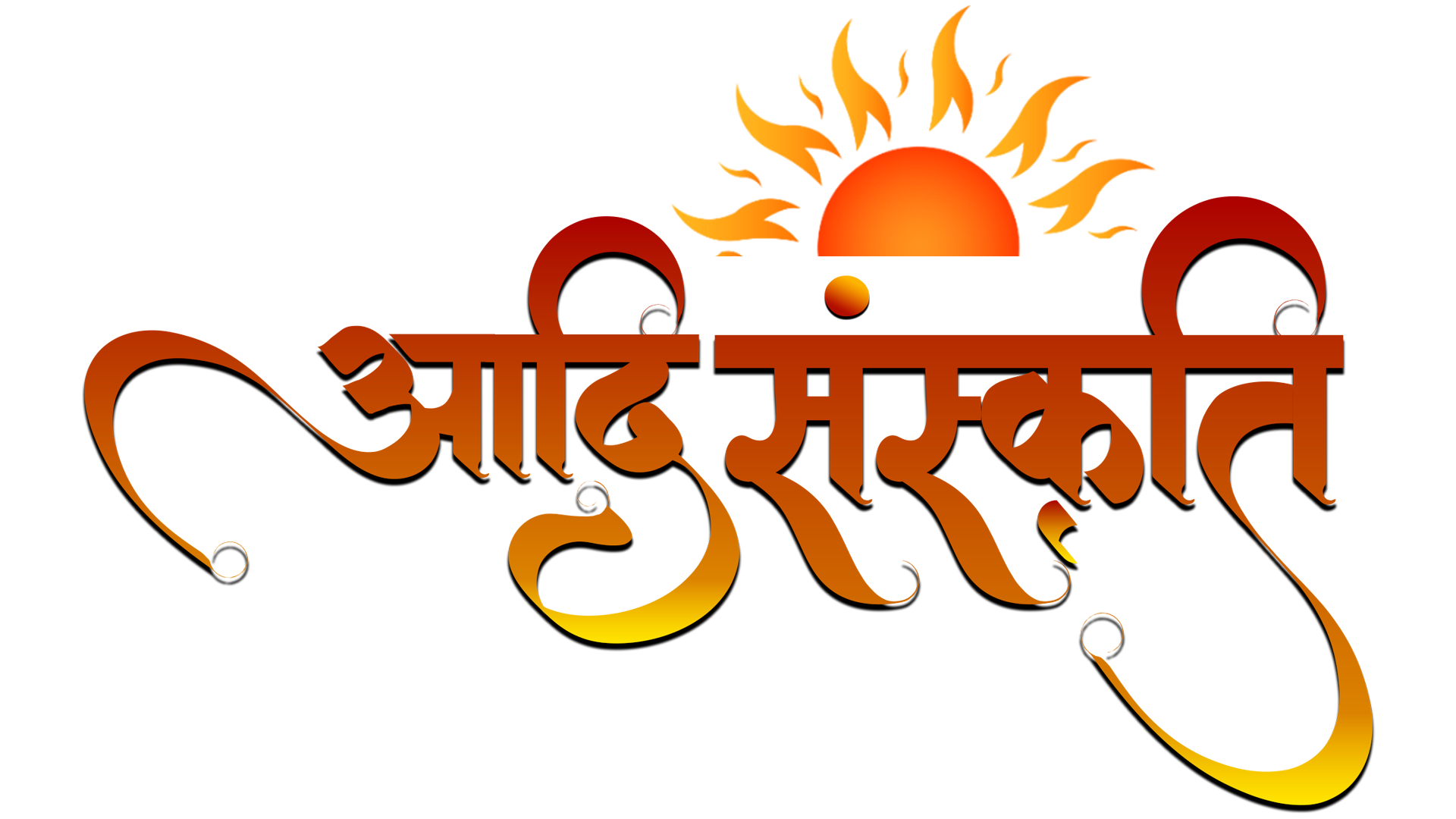
Themes
tribal dance
Baastu and Paabni, meghalaya
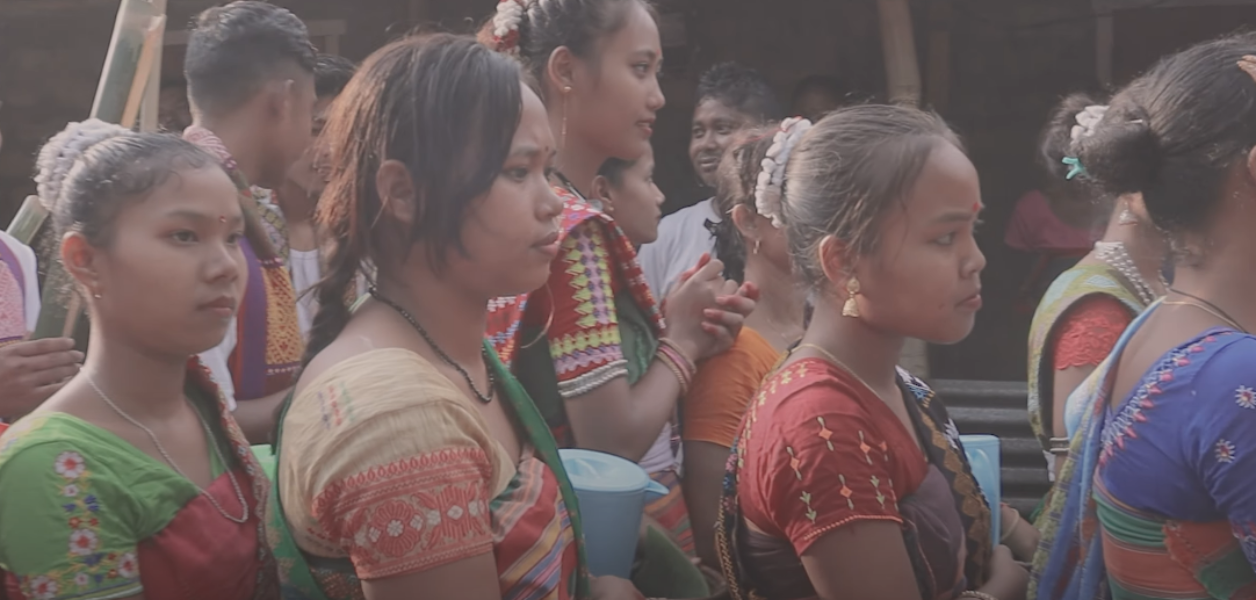
The Hajong people, primarily farmers, celebrate the Baastu and Paabni dances as part of their unique animist faith. "Paabni" means to "get something" from mother nature. Celebrated in April/May or October/November, the rituals occur before sowing seeds. After village prayers, the priest (Nongtang) is welcomed with rice beer and steam rice cake (Punipitha). Villagers then perform ritual dances and songs, beating traditional drums and instruments at Baastu and Paabni Thaan, praying for a fruitful harvest.
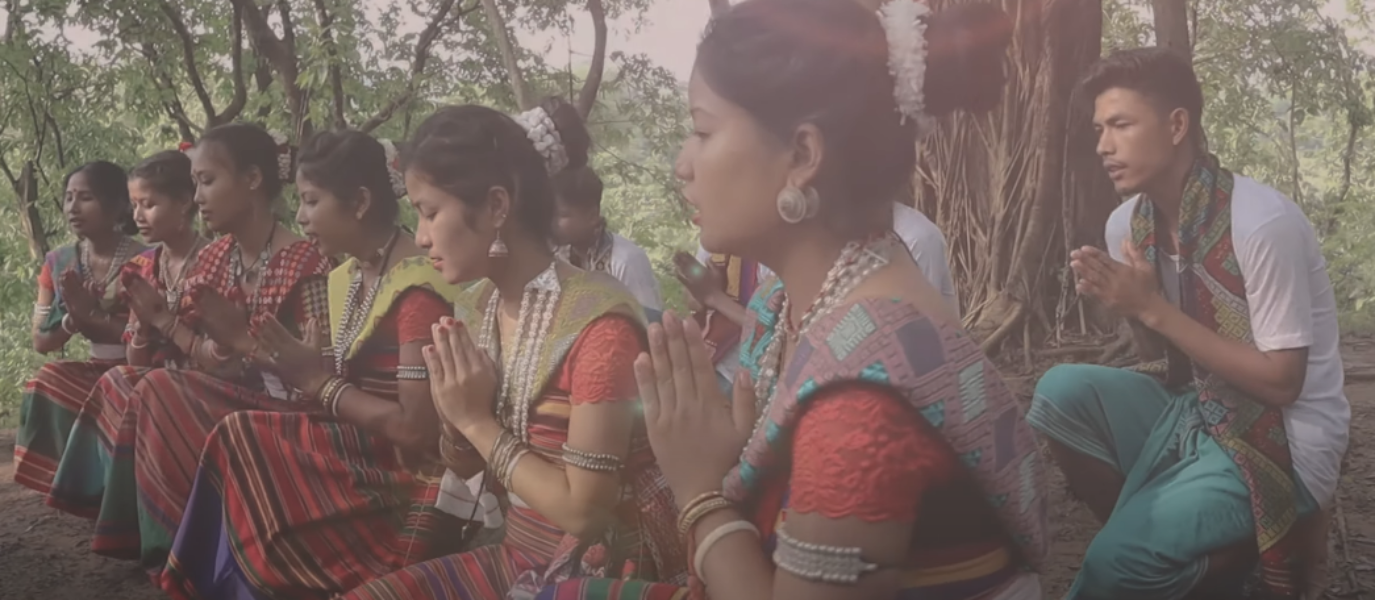
The Hajong tribe, primarily found in the northeastern states of India, are predominantly farmers deeply connected to nature. They practice unique indigenous worship, such as the Baastu and Paabni dances, celebrating their agricultural cycles and seeking blessings from mother nature. The Hajong people follow animist beliefs and rituals, emphasizing the importance of land and harvests. They are known for their colorful traditional attire and vibrant festivals, which reflect their rich cultural heritage and strong community bonds.
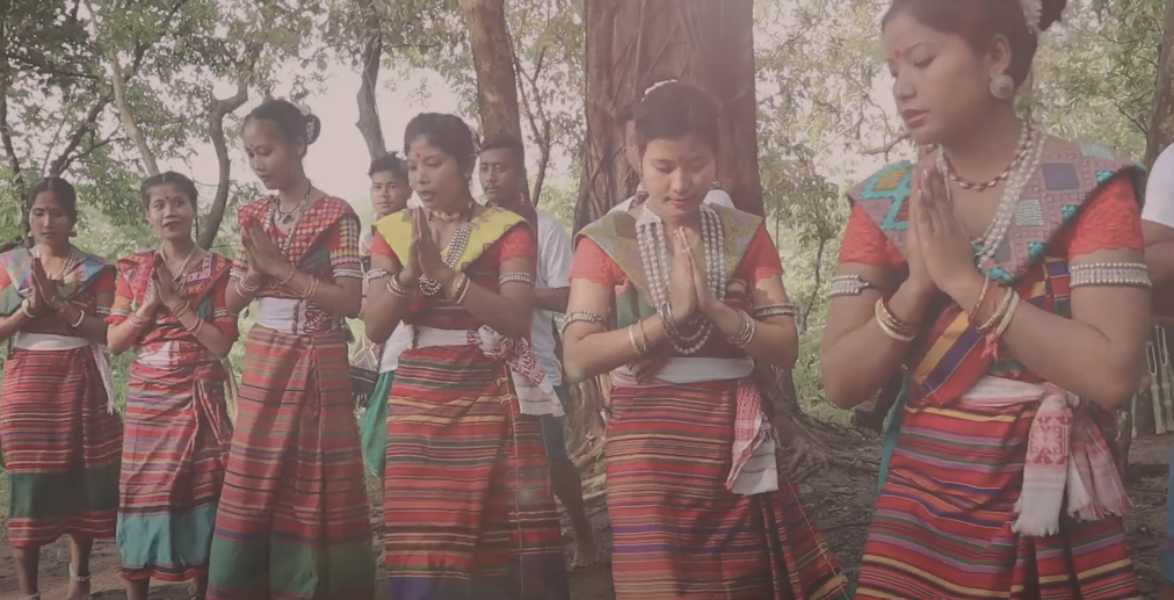
The meaning of the seven prayers with dance to the mother nature is - a) for the good health of the villagers throughout the year, b) for the good harvest at the season ends, c) for the prosperity & protection of livestock during the time of ploughing, d) for a good amount of rainfall throughout the year, e) for the protection of life and property from natural calamities, f) for the overall prosperity of the tribe as a whole, g) for the peace & tranquility in the world.
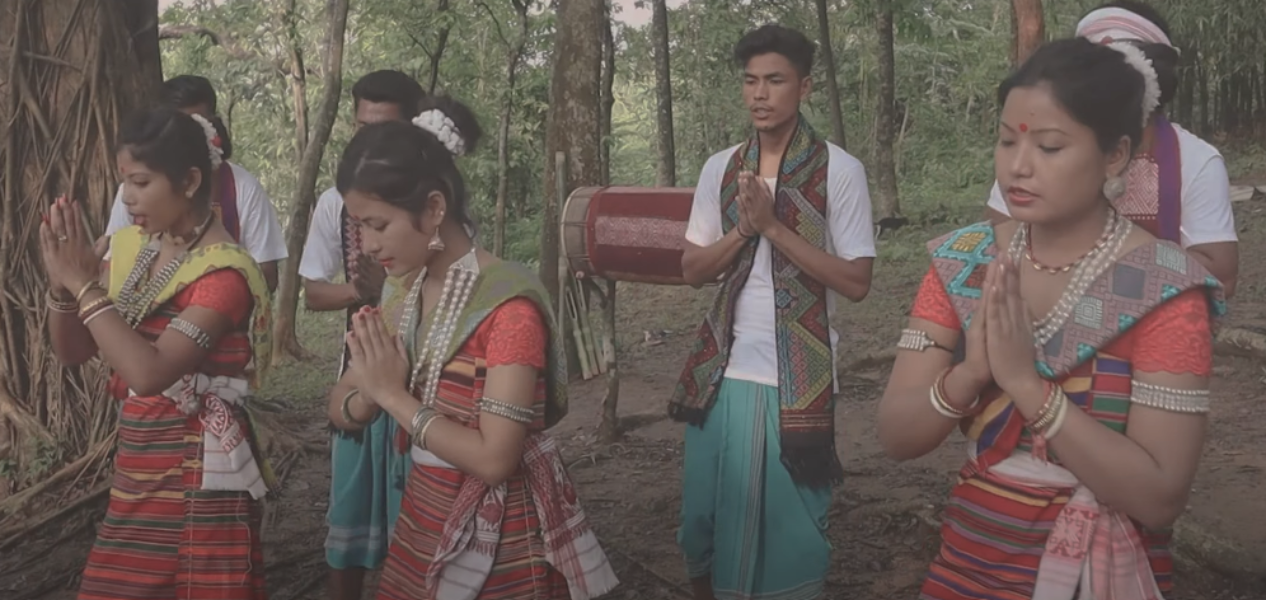
During the Baastu and Paabni dances, Hajong men wear Bhiza Lingti (Dhoti), Bukchuli, and Phula Kompesh. Women dress in traditional Rangapate or Rangapatin and Phula Agron, accessorized with Haarsora, Katabaju, Hasli, Kankoreya, Koromphul, Kunthimala, Kamarguz, Bakgunjri, Bakkharu, Boela, and Noat ornaments. These costumes and jewelry enhance the visual splendor of the festival, reflecting cultural pride and the community's deep connection to their traditions.
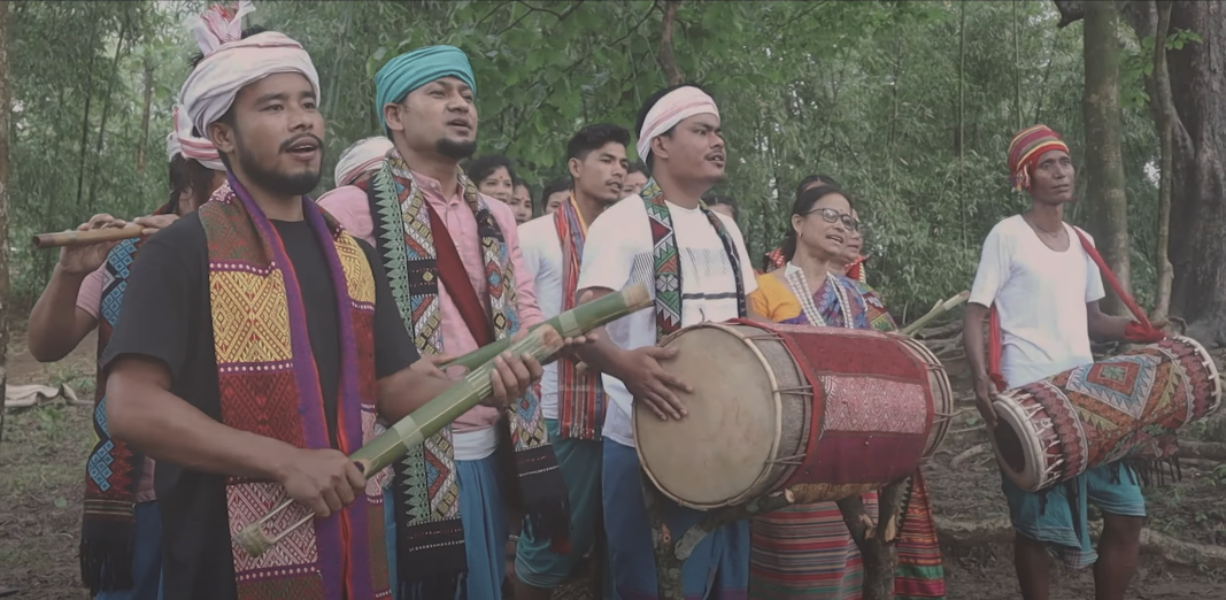
The Baastu and Paabni dances of the Hajong tribe are accompanied by traditional musical instruments, creating a vibrant and rhythmic atmosphere. Instruments include the Dhaki (traditional drum), Dhuluk, Khul, Taaktaka, Ghilataal, Therthera, Dotra, and Bahi. These instruments provide rhythmic beats and melodies that energize the dancers and captivate the audience. The music enhances the festive ambiance, celebrating the Hajong community's rich cultural heritage and deep connection to their traditions and agricultural practices.
